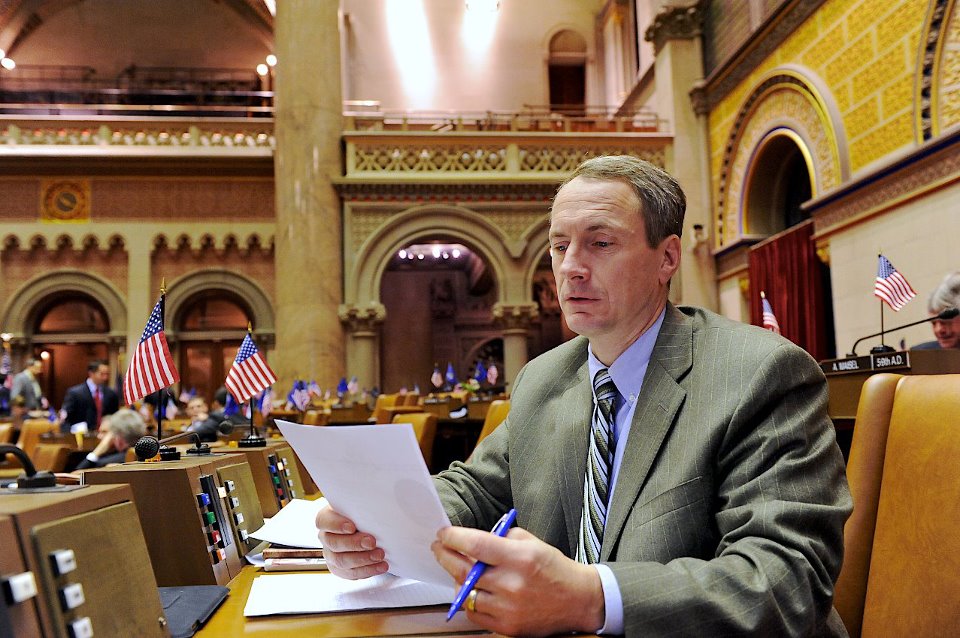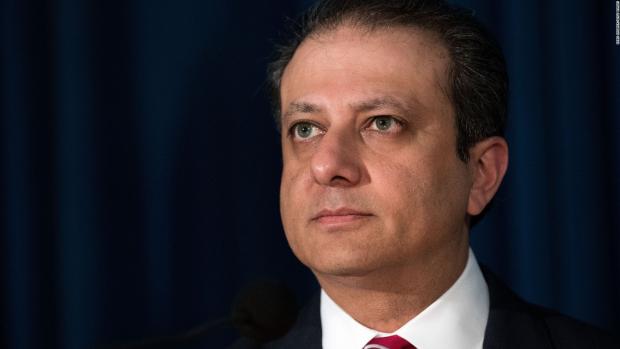The Public Record: After Preet, Ethics Reform Is Finished
AFTER PREET, LE DELUGE: After President Donald Trump fired US Attorney Preet Bharara, who had developed a reputation as the “Sheriff of Albany,” state lawmakers must have breathed a sigh of relief. In any case, they seem to have stopped pretending to care about ethics reform.
Discussions around reforms became more prominent after Bharara’s office arrested both legislative leaders, Assembly Speaker Sheldon Silver and state Senate Majority Leader Dean Skelos, within weeks of each other on corruption charges in 2015. Each year, Governor Andrew Cuomo proposes ethics reforms as part of his agenda, with some success and failures.
This year, the governor proposed the usual ethics reforms he has included for the past few years, but little was done to include them in the state budget. He has blamed the state legislature for the lack of progress, arguing that lawmakers have already agreed to some reforms and have no appetite for more.
Some legislators disagree. This year, the state Senate passed term limits for legislative leaders and committee chairs. Lawmakers also approved a measure that would strip government pensions from lawmakers who are convicted of corruption—a seemingly commonsense reform.
“I sometimes think that people don’t understand that—particularly when it comes to ethics and campaign finance—that the people who are in office have found advantages to the existing system and they’re not the ones interested in changing it,” Democratic state Senator Liz Krueger said. “I have had more than a few elected officials say to me, “Public opinions polls show that no one really cares very much about this. Yippie! We don’t have to do anything.’”
Among the good government proposals that have failed to pass in recent years are limits on outside income earned by lawmakers and closing the so-called “LLC loophole” to rein in virtually unlimited campaign contributions. Some have also called for changes to the state Joint Commission on Public Ethics, which has drawn criticism for a lack of independence and transparency.
Following the indictments of some of Cuomo’s closest confidants for alleged bribery and pay-to-play schemes involving state economic development funds, there has also been heightened attention paid to the oversight of the programs in questions.
This year, Cuomo proposed a rebranding of the controversial Start-Up New York program, which offers tax breaks for businesses that partner with a college or university. The program has been criticized for creating relatively few jobs, but little was done to provide more oversight. For a governor who repeatedly prides himself on being able to make deals and get things done, some lawmakers believe if Cuomo really wanted to pass ethics reforms, he would have already.
“If there was something specific that the governor wanted to accomplish or at least put out there, he should have done it through the budget process because he put everything but the kitchen sink in the budget anyways,” Assembly Minority Leader Brian Kolb said. “So, I think it rings hollow when he says the Legislature doesn’t have the appetite for it.”
During this year’s legislative session, allegations of corruption have continued to dog lawmakers. Recently, it was reported that stipends that are supposed to go to committee chairs in the state Senate went to several Independent Democratic Conference and GOP members who do not actually chair those committees.
Krueger said she stands with her conference leader, state Senate Minority Leader Andrea Stewart-Cousins, who has demanded that the practice be investigated. State and federal prosecutors are reportedly doing so.
With Cuomo’s public schedule frequently showing him outside of Albany and his stance that virtually everything got done in the budget, it appears unlikely there will be any ethics reforms toward the end of the session.
“Everyone’s always declaring, ‘We’ve done it already,’ which I always find amusing,” Krueger said. “I think on some degree, leadership is saying there’s no problem to be taken care of anymore. Of course, I think 19.5 million New Yorkers know that’s not true.” —ASHLEY HUPFL, CITY & STATE

RYAN ROLLS OUT LEAD POISONING PROGRAM: Lead poisoning in Buffalo is a public health crisis. Even low levels of lead in children’s blood can cause permanent damage, such as learning and developmental disabilities.
Last Thursday morning, Assemblyman Sean Ryan announced his plan to combat this problem. His first proposal would amend the state’s definition of elevated blood lead level to match what the federal Centers for Disease Control and Prevention considers to be dangerous. (In March 2016, Investigative Post reported how the state Department of Health has failed to adopt the more stringent CDC standard.) If the new level is adopted, the state and county health departments would have to expand services to potentially thousands of more children across the state.
Erie County spends $750,000 a year for lead prevention. A portion of that funding already goes to helping children diagnosed with lead levels that the CDC considers to be concerning. But most of the other health departments throughout the state do not provide services to similarly diagnosed children in their counties.
Ryan’s second proposed law would require all day care centers to test drinking water for lead, similar to what public schools do already.
His third legislative proposal would ban the sale and distribution of lead-laced jewelry that is marketed to children.
His fourth proposal would prohibit insurance companies from excluding coverage in home policies for children harmed by chipping and peeling lead paint. Some 85,000 homes and apartments in Buffalo are considered at risk for lead paint hazards. Presently, renters cannot file insurance claims to cover damages caused by chipping and peeling lead paint.
“It’s an awful exclusion, it’s immoral, it’s unconscionable,” Ryan said during his press conference on Buffalo’s West Side, which has some the highest lead poisoning rates in the state.
All of Ryan’s proposals require approval from the state legislature and governor. —DAN TELVOCK, INVESTIGATIVE POST

